personality generator
March 06, 2022
link to code
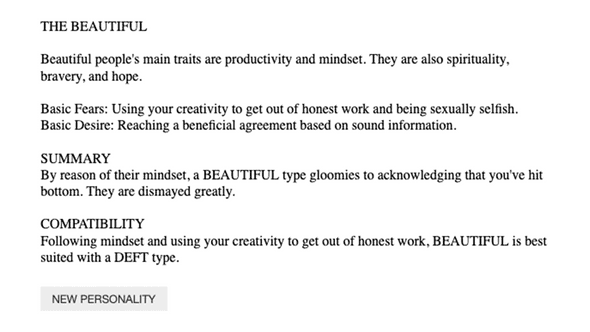
inspiration
i’ve wanted to work with personality tests for a moment, and this seemed like a good opportunity to explore the output of personality tests. specifically, i drew inspiration from enneagram, myers briggs, and astrology analysis as my baseline for what i wanted to create.
i looked at these examples as my inspiration (you can also read more about the tests themselves): enneagram description enneagram type 1 enneagram type descriptions
myers briggs personality types myers briggs ENFP myers briggs ISTJ strengths & weaknesses
astrology moon signs astrology moon signs in relation to their sun
process
i began with identifying what i wanted to include in my version of this generator. key features of each personality test result i identified:
- title
- brief description with important traits
- strengths / weaknesses, desires / fears
- longer description
- compatibility with other types
this translated into my ruleset pretty directly:
rules = {
"origin": "#title#",
"title": "THE [type:#description#]#type.uppercase#",
"description": descript["descriptions"]
}something i didn’t realize for awhile is that you can save states of effectively variables using [] and whatever you want the data to be saved as. in the above example i use type as my variable name and pulling that randomly from my source files.
here are some in-progress screenshots of what was being generated:
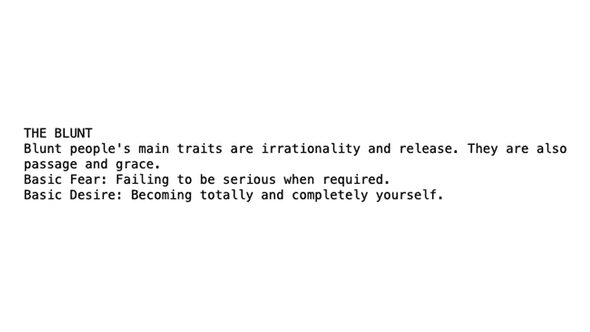
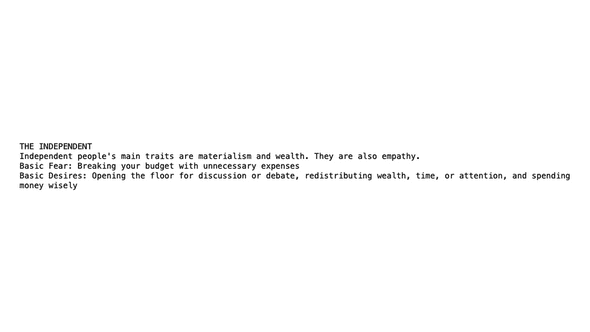
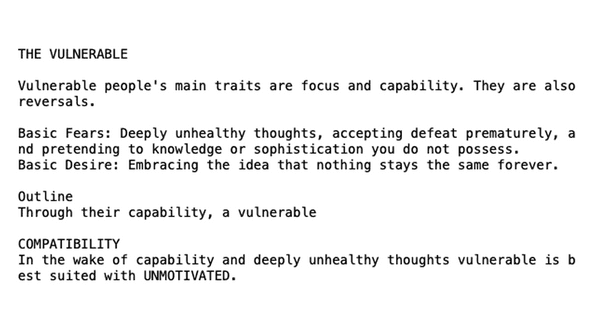
speaking of my source files, these came from the corpora project:
moods tarot interpretation adj for describing people
i pulled these in using the following code:
import json
with open('descriptions.json') as f:
descript = json.load(f)
with open('moods.json') as f:
mood = json.load(f)["moods"]
with open('tarot_interpretations.json') as f:
interpret = json.load(f)
# post-processing data
buzzwords = []
fears = []
desires = []
for i in interpret["tarot_interpretations"]:
buzzwords.extend(i["keywords"])
desires.extend(i["meanings"]["light"])
fears.extend(i["meanings"]["shadow"])i selected moods, tarot interpretations, and adjectives for describing people from the corpora project, and parsed it as needed. the only one i did more data processing on was tarot interpretations, because the “keywords” can be used as traits of a person. for the light and shadow, i made those into fears and desires for each personality.
i also added a button, which reruns the cell so that the personalities are generated endlessly. this was done with the following code:
def run_all(ev):
display(Javascript('IPython.notebook.execute_cells_below()'))
html_src = "<body><p>"+"".join(story).replace("\n", "<br>")+"</p></body></html>"
show_html(html_src)
button = widgets.Button(description="NEW PERSONALITY")
button.on_click(run_all)
display(button)final
link to code (again)

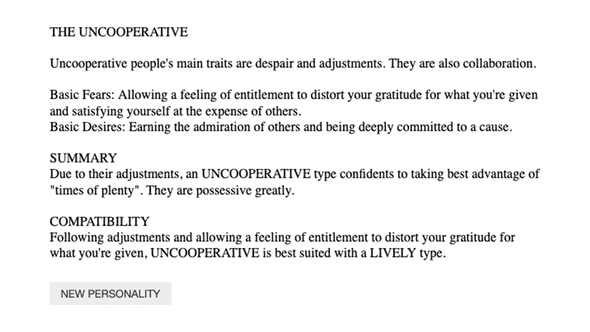
resources
tracery and python notebook tracery repository tracery tutorial ipython display documentation running all cells from button
a blog by sam heckle class of itp 2022. doing shit. twitter.